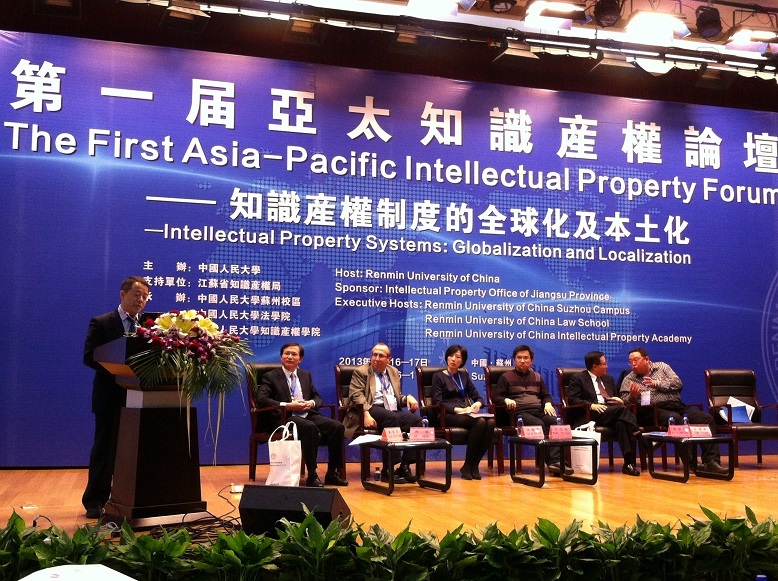
TEL:+86-20-87014285
FAX:+86-20-37023189
MAIL:info@china-techno.com
China to Further Strengthen IPR Protection

On November 16 and 17, in Suzhou Jiangsu province, the 1st Asia-Pacific IPR Forum, hosted by Renmin Unversity, was held, attracting more than 200 IPR scholars from America, Canada, Japan, Korea and China. Xi Xiaoming, deputy chief justice from the Supreme People's Court, addressing the forum emphasizing that the courts nationwide have adopted series of measures to strengthen IPR protection, which is also the basic policy orientation and purpose of IPR judicial protection system.
According to Xi, based on years of IPR judicial practical experiences, China has gradually developed a sound policy system of IPR judicial protection, and has ensured the basic judicial policy of strengthening protection, Xi says that efforts should be striven to ensure implementation of law system, and the judges should take effective actions to apply more severe punishment and lower protection costs. To do so, courts nationwide have adopted series of effective measures, which have been divided into the following steps:
Firstly, the courts have increased compensation for IPR violations. On statistical methods, the right holders have been given more choices and rights to choose the compensation calculation methods. Implementation of evidence spoliation system has been intensified, under which, even if the violators have refused to provide evidences for illegal income without just reasons, the right holders will be ruled in favor for the compensation they require. This mechanism has been introduced in the newly amended trademark laws, and is recognized in trials for patent disputes and copyright cases. System of compensation based on discretion has been strengthened. Judges have been given more power to decide the compensation based on the objective facts and evidences, no maximum and minimum under the current law frame.
Secondly, China's courts have adopted effective measures on lightening righters' burden of proof, no more blindly abide strictly by the principle that "who propose, who proof".
SOURCE: China IP News
